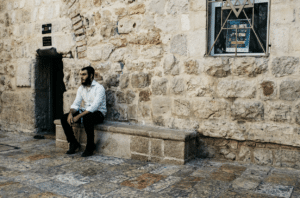“O LORD, the hope of Israel, all who forsake You will be put to shame. Those who turn away on earth will be written down, because they have forsaken the fountain of living water, even the LORD” (Jer 17:13).
Jeremiah calls God “the Hope of Israel” three times in his book (Jer 14:8; 17:13; 50:7). In chapters 14 and 17, this special name for God appears in the context of terrible droughts and/or waterless deserts (Jer 14:1-6; 17:6). And in this particular context, this name has great significance. This noun for hope comes from the same Hebrew root where we get the verb “to hope” (qava) as well as the abstract noun “hope” (tikvah). But in this name for God, the noun is prefixed with the Hebrew letter “mem,” a prefix added to nominal roots to identify places and/or sources to get the particular commodity signified by the root. In modern Hebrew, for example, when we add a “mem” to the verb “to eat” (sa’ad), the word means restaurant, misa’ada i.e., a place and or source where we get “food.”
By using the name “miqveh” for God, therefore, Jeremiah acknowledges that God is the only place and source for Israel to find hope.
But Jeremiah is quite a brilliant poet, and he knows there is another Hebrew word that looks exactly like the word “hope,” and it means “water reservoir” (see Gen 1:10; Exod 7:19; Lev 11:36; 1 Kings 10:28; see also Isa 22:11). In Jeremiah 14:8 and 17:13 Jeremiah uses this word as a double entendre (one word with two interpretations) to signify that God is both Israel’s only source of hope and also their only source of living water (i.e., life).
When we consider Yeshua’s promise in John’s Gospel to provide living water in its biblical (OT) context, we are able to correctly identify Yeshua as Miqveh Yisrael –Israel’s hope and source of life! Are we feeling hopeless and desperately thirsty for life? Let us forsake the broken cisterns we dig for ourselves, and satisfy our souls in Yeshua!
“For My people have committed two evils: They have forsaken Me, the fountain of living waters, to hew for themselves cisterns, broken cisterns that can hold no water” (Jer 2:13).
“Now on the last day, the great day of the feast, Jesus stood and cried out, saying, ‘If anyone is thirsty, let him come to Me and drink. He who believes in Me, as the Scripture said, “From his innermost being will flow rivers of living water”‘” (John 7:37-38).















